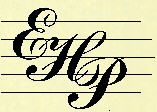Elizabeth:† They build these halls as if they donít want to hear
anything.† An ideal acoustic makes the job
of the singer vastly easier.† You can
overcome a bad room but itís hard work.
Charlie:† What do you think of the Carnegie Recital Hall?
Elizabeth:† Itís ideal.† Carnegie is
famous for that.† The big hall is no
slouch either for what it is.† Thatís what
made Carnegie Hall so famous and why it had to be rescued.† Thank Isaac Stern for that.† The place is a treasure.
Charlie:† A good room.
Elizabeth:† The best.† I donít know
why they donít know how to build those anymore.† Itís like we forgot.† The
acoustics in architecture is the one thing I can think of that has moved
backward.†
Singing
has evolved with the demands of the business.†
Concert and opera halls are larger than the halls people sang in a few
hundred years ago.† The Romantic
Movement brought a fad of gigantism and today the market constraints mean you
canít support a performing organization unless you can sell 2-3,000 tickets to
the performance.† Those are the
economics.† You canít survive on 800
tickets a night.† The little theaters in
Europe have state support.† They need
extra money because there arenít enough seats in the theater to support it.
Charlie:† So if you could do opera in a football stadium you would be all
set?
Elizabeth:† Yes, then youíd make your money.†
They could put it on the big screen like the big sporting events.† Then stay home and watch TV (laughs).†
Charlie:† So the problem is, if you build a room big enough to make money
itís too big for opera?
Elizabeth:† Right, then you canít see or hear anybody.† The evolution of culture has a lot to do
with the realities of the market.† Why
were the theaters small in the old days?†
Because a lot of them were located on private estates and supported by a
patron.† Then it didnít matter if they
sold tickets.† It was their family
fun.† It was their home theater.
Charlie:† So instead of a DVD player they would have an opera house?
Elizabeth:† Right (laughs).† Theyíd
put on spectacles and pageants and operas and concerts.† There were very famous ones like the
Esterhazy estate that supported Haydn.†
He wrote hundreds of pieces for those guys.† Heíd write one every week.†
The composers lived at court and were paid by the piece and they were
very prolific.† They didnít sit around
three years philosophizing.† They just
sat there and wrote and wrote and wrote---nothing wrong with that.† But we donít have those kinds of patrons
anymore.†
Charlie:† We donít have the composers either it seems.
Elizabeth:† Well, that has evolved too.† We have working composers.† They are mostly in Hollywood writing movie scores.† Somebody like Howard Shore is prolific.† He has a whole company and people working with him.† The composers are out there.† They arenít doing Esterhazy operas any more.† They are going where their work is needed, driven by the market.†
(Interview with Elizabeth Parcells 2005)
